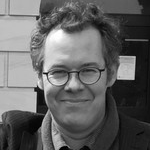Keynotes
The promise of EFT
In honor of Dr. Sue Johnson, whose journey in life ended on April 23 2024, two ICEEFT trainers will show the power of the EFT model. EFT is making key specific contributions to the art and science of psychotherapy, our understanding of human strengths and vulnerabilities and the creation of secure empowering relationships.
These contributions offer a path forward through the darkness of chaos and uncertainty to a place where we can stand together and find the balance needed to confront our many problems. The future of EFT and its potential to help build a more secure world where we can understand who we are and how we can grow as human beings will be outlined.

Mariska Kret
The Netherlands
Emotion Processing in Homo and Pan
Throughout evolution group-living species, including great apes and humans, have developed the ability to quickly recognize, empathize and respond to the emotional expressions of others. When individuals unconsciously mimic the emotional expressions of interaction partners, they experience a reflection of those emotions, which guides their social behaviors such as to trust, cooperate, or form romantic bonds. While much of the research on emotions has focused on facial expressions in humans, there is still a lot to learn about body language and subtle physiological responses like pupil dilation and blushing. In my research, I take a comparative approach, examining similarities and differences in how humans and great apes perceive emotions. Ultimately, our goal is to deepen our understanding of emotional expressions and how we interpret each other’s emotions, which can contribute to stronger social connections and relationships.
Brain mechanisms for certainty, uncertainty and hope: a neuropsychoanalytic perspective
In this presentation, Mark Solms will describe the pivotal role that is played in memory and voluntary and involuntary actions by the processing of certainty and uncertainty regarding expectations. These memory and action mechanisms will be discussed in relation to brain mechanisms for emotion, with a special focus on hopeful expectations. Finally, these issues will be linked to the process of psychotherapy.
Karin Wagenaar has interviewed Mark Solms, to talk about his presentation during the EFT World Summit. Watch the whole interview here.

Mark Solms
Neuropsychologist
South Africa

Siebrecht Vanhooren
Existential psychologist
Belgium
Embracing uncertainty in order to overcome despair: An experiential-existential point of view
Certainty can be understood as the experience that we have our existence – ourselves, the other, the planet and the beyond under control. As we widen our perspective, it is obvious that certainty is only a timely experience, and once we experience its opposite, we might feel betrayed or (self-)deluded. Experiencing uncertainty is often accompanied with existential shattering: the experience of angst, despair, a loss of meaning, existential isolation, and sometimes shame and guilt. In today’s world, we are not only facing uncertainty through our moments of personal brokenness. A larger uncertainty is looming in the background: climate change and all its consequences in the shape of ecological disasters, wars and mass migration. Climate change immediately endangers ‘our’ existence, ranging from plants and animals to us, human beings. How can we cope with all of this? Are there any beacons of hope, and can we be certain that everything will be alright in the end? Or are these beacons of hope only fata morganas we would like to believe in in order not to drown in the overwhelming sea of despair?
Paradoxically, we can only find new meaning, courage and wisdom by rooting deeper and grounding more firmly in existence on the one hand, and by integrating uncertainty and other aspects that threaten our existence (such as death, isolation, and meaninglessness) into our lives on the other hand, as Tillich suggests. Reaching for connection beyond ourselves might become a resource from where we can courageously embrace the state of our world (and ourselves) and act bravely. What is your beyond yourself(-ves)?
Karin Wagenaar has interviewed Siebrecht Vanhooren, to talk about his presentation during the EFT World Summit. Watch the whole interview here.
The Science of Sex in Long-Term Relationships
In this talk, sex educator Emily Nagoski will describe a transformative approach to “low desire.” Based on the most current science, this talk offers three actionable ideas for helping clients sustain (or rebuild!) a sexual connection in a long-term relationship by shifting focus from desire to pleasure and strategies to co-create it.
Karin Wagenaar has interviewed Emily Nagoski, to talk about her presentation during the EFT World Summit. Watch the whole interview here.

Emily Nagoski
Psychologist & Sexologist
USA
Contact Us
If you have any questions about the 2024 EFT World Summit please get in touch with us.
+31 85 902 28 36
info@efteuropa.com
Stadsplateau 7-8.22
3521 AZ Utrecht
The Netherlands
The 2024 EFT World Summit is organized in cooperation with:

Dutch EFT Foundation

International Centre for Excellence in
Emotionally Focused Therapy
Click here to read the ‘Registration and Cancellation procedure’.